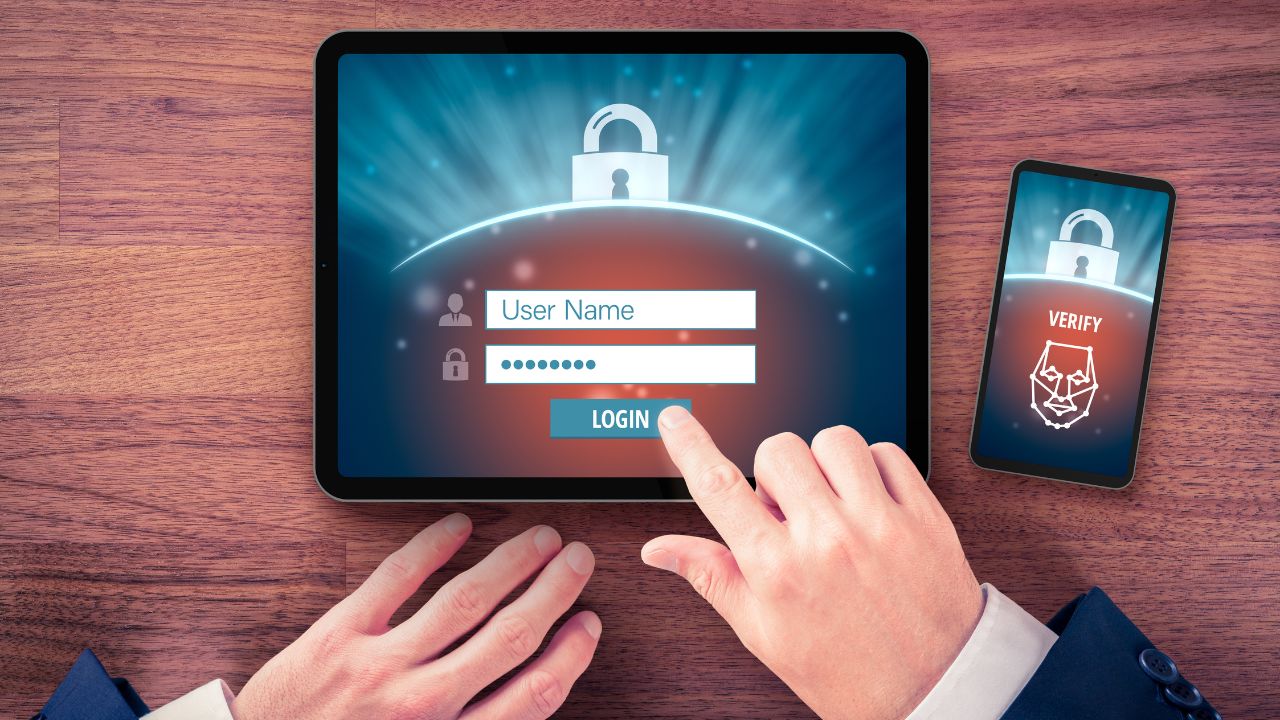You know, one of the absolute worst feelings in the world is when you get that creepy sensation that someone is spying on you. It’s just so unsettling, whether it’s happening in real life or online. I mean, seriously, who wants to be watched without their permission, right?
That’s why it’s important for us to be proactive and take all the necessary steps to protect ourselves.
Here are my top 10 tips for keeping your information away from those creepy spies.

1. Have good antivirus software
You often hear me talking about this and there’s a good reason. One of the best ways to protect yourself from being spied on is to have antivirus protection installed on all your devices. Having good antivirus software allows you to be resilient against growing attacks by actively running on your devices. It’s the best to help stop and alert you of any malware in your system, warn you against clicking on any malicious links in phishing emails, and ultimately protect you from being hacked.
See my expert review of the best antivirus protection for your Windows, Mac, Android & iOS devices.
Special for CyberGuy Readers: My #1 pick is TotalAV, and you can get a limited-time deal for CyberGuy readers: $19 your first year (80% off) for the TotalAV Antivirus Pro package.
2. Remove yourself from the internet
Your personal data can get exposed online in various ways, such as data breaches, data scraping, or data sharing by hackers, websites, platforms, or on the dark web. This can put your privacy and security at risk. While no service promises to remove all your data from the internet, having a removal service is great if you want to constantly monitor and automate the process of removing your information from hundreds of sites continuously over a longer period, and it would significantly decrease the chances of someone being able to spy on you all the time.
A service like Incogni can help you remove all this personal information from the internet. It has a very clean interface and will scan 195 websites for your information and remove it and keep it removed.
Special for CyberGuy Readers (60% off): Incogni offers A 30-day money-back guarantee and then charges a special CyberGuy discount only through the links in this article of $6.49/month for one person (billed annually) or $13.19/month for your family (up to 4 people) on their annual plan and get a fully automated data removal service, including recurring removal from 175+ data brokers. I recommend the family plan because it works out to only $4.12 per person per month for year-round coverage. It’s an excellent service, and I highly recommend at least trying it out to see what it’s all about.
Use the code: CYBERGUY at checkout to get an exclusive discount – click here.
3. Avoid using apps like Temu
Certain readily available apps are made to spy on you and harvest your personal data . The Chinese-based app Temu and its sister app Pinduoduo have been found to collect sensitive information on users, including tracking locations, recording contacts, browsing history, and other personal information.
Before you download any app, make sure you read its privacy policy or, at the very least, search the app name along with the word ‘privacy.’ Closely look at its reviews and ratings, and make sure it’s coming from a legitimate official source like the App Store or the Google Play Store. Never link to download an app from an email or text message. Those links often lead to trouble compromising your security.

Credit: Temu
MORE: EXPOSING THE SHOCKING TRUTH ABOUT POPULAR APPS WITH CHINESE TIES
4. Use a VPN
Consider using a VPN to protect against who can track you and identify your potential location on websites that you visit. Many sites can read your IP address and, depending on their privacy settings, may display the city from which you are corresponding. A VPN will disguise your IP address to show an alternate location.
My top recommendation is ExpressVPN. It has a quick and easy setup, is available in 94 countries, and will not log your IP address, browsing history, traffic destination or metadata, or DNS queries.
Right now you can get 3 extra months FREE with a 12-month ExpressVPN plan. That’s just $6.67 per month, a saving of 49%! Try 30 days risk-free.
5. Use a webcam cover
You know those little cameras that you see built into all of your devices? Or the external webcams that you plug into your computer? If your devices become compromised, hackers can gain access to your webcam to spy on you and learn your sensitive information. Covering your webcam with a simple piece of electrical tape or using a physical camera cover is an easy and inexpensive way to take control of your privacy and get some peace of mind.
Think of it like closing the curtains on your window. Why should anyone have the opportunity to see what you are doing in the comfort of your own home? It is an easy suggestion for everyone that can prevent massive issues.
Is someone spying on you through your hacked webcam? 7 red flags
MORE: IS SOMEONE SPYING ON YOU THROUGH YOUR HACKED WEBCAM? 7 RED FLAGS
6. Have strong passwords
Create strong passwords for your accounts and devices, and avoid using the same password for multiple online accounts. Consider using a password manager to securely store and generate complex passwords. It will help you to create unique and difficult-to-crack passwords that a hacker could never guess.
Plus, it also keeps track of all your passwords in one place and fills passwords in for you when you’re logging into an account so that you never have to remember them yourself. The fewer passwords you remember, the less likely you will be to reuse them for your accounts.
One of the best password managers out there is 1Password. With no known security breaches or vulnerabilities, 1Password is a solid option as a paid password manager. It utilizes a well-designed interface, which features core components that are expected from premium, paid password managers. At the time of publishing, it starts at $2.99 a month, billed annually, for a total of $35.88/year, and you can save more with a family option which includes 5 family members for $60/year.
7. Use 2-factor authentication
Having 2-factor authentication is just another way to keep those spies out of your accounts. If someone guesses your password, 2-factor authentication will pose another barrier for them to have to break through. This will encourage many hackers to give up on trying and will cause major setbacks for the rest who still try to get into your accounts.
Many devices offer 2-factor authentication, and it is typically used either through an SMS-text messaging system, an authentication app, or with a fingerprint or facial scan, making it nearly impossible for a hacker to bypass it. If you don’t have 2-factor authentication on your devices already, I would highly recommend looking into it.

MORE: WHAT IS TWO-FACTOR AUTHENTICATION, AND SHOULD I ENABLE IT?
8. Double-check camera and microphone settings
Your smartphones, tablets, and computers should have adjustable settings for both your camera and microphone. Oftentimes people don’t realize that every app on your device has its own set of permissions, so you might be giving camera and microphone access to an app that you don’t want to give access to. These settings can be easily changed, so make sure you’re only giving camera and microphone permission where absolutely necessary to avoid any snoopers from looking into your information. There are different ways to manage the camera and microphone permissions on your phone, depending on the app you are using.
How to adjust your microphone or camera using third-party apps on iPhone
- Go to Settings
- Then scroll down to Privacy and Security and tap it
- Then go to Microphone or Camera and toggle the switch next to the app’s name to grant or revoke access
How to adjust your microphone or camera permissions using Safari on iPhone
- Go to Settings
- Then click on Safari
- Next, scroll down to where you see Settings for Websites and then tap on either Camera or Microphone and select Ask or Deny for each option
How to adjust your microphone or Camera permissions for all apps on Android
- Open Settings app
- Tap Apps
- Look for the app you want to change the permissions for and select it
- Tap Permissions
- Then click Camera and Microphone and tap Don’t allow
How to adjust your microphone or camera preferences using Chrome on Android
- Open the Chrome app and tap the three dots in the upper right-hand of the screen
- Go to Settings and tap it
- Scroll down to Site Settings and tap it
- Then go to Microphone or Camera
- Then, toggle Off the microphone or camera off for each site
How to adjust your microphone or camera preferences using Firefox on Android
- Open the Firefox app
- Then tap Menu, which is the three dots in the bottom right of the screen
- Scroll down and tap Settings
- Then click Site permissions
- Then you’ll want to click on either Camera or Microphone and tap to block access for each site
MORE: ARE YOUR OWN DEVICES INADVERTENTLY SPYING ON YOU?
9. Lock your screens
If you want to protect against a snoop physically peeking over your shoulder, which happens more often than you might think, then having a lock on your screen is the best way to protect yourself.
You can create passcodes for your smartphones, tablets, or computers, and some devices will also allow you to enable a fingerprint or Face ID lock to prevent snoops from guessing a number passcode.
For step-by-step instructions on how to lock up your screen devices, click here.
MORE: HOW TO MAKE YOUR DEVICES IMPOSSIBLE TO SNOOP ON WITH A PRIVACY SCREEN
10. Turn off your location
Location settings are a key way for hackers and spies to keep tabs on you. The last thing you want is for someone you don’t know to have information on where you’ve been or where you’re going. Keeping your location services either completely off or limited, especially on your smartphone, which you take with you everywhere you go, can prevent a hacker from having that information.
However, before you turn off location sharing to everything on your devices, you need to know the consequences of doing so. That’s because several applications use your location services, like location-based apps, which include your map, navigation, photo, weather, and fitness apps. Also, your browser uses your location to provide relevant search results. In addition, emergency services could be affected if you turn off location sharing. In fact, your location may not be automatically shared with emergency services, which could delay response times or make it difficult for emergency personnel to find you.
If you still want to turn off location data, I can take you through all the steps by clicking here.
How to check that you’re not accidentally sharing your location
MORE: LOCATION SOFTWARE: LIFESAVING OR LIFE-THREATENING?
Kurt’s key takeaways
We all have to be vigilant when it comes to protecting our privacy because these hackers and spies will do anything to get your information from you. I know it can seem scary; however, as long as you take the proper precautions and stay alert at all times, then you can have a safe and enjoyable experience while you’re surfing the web.
What scares you the most when it comes to your online privacy? Are there any specific concerns you have that you’d like us to address? Let us know by commenting below.
FOR MORE OF MY SECURITY ALERTS, SUBSCRIBE TO MY FREE CYBERGUY REPORT NEWSLETTER HERE
Copyright 2024 CyberGuy.com. All rights reserved. CyberGuy.com articles and content may contain affiliate links that earn a commission when purchases are made.


